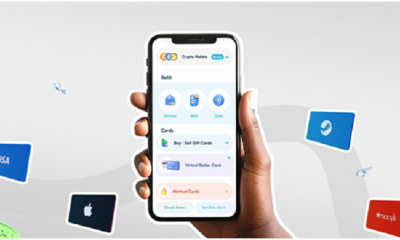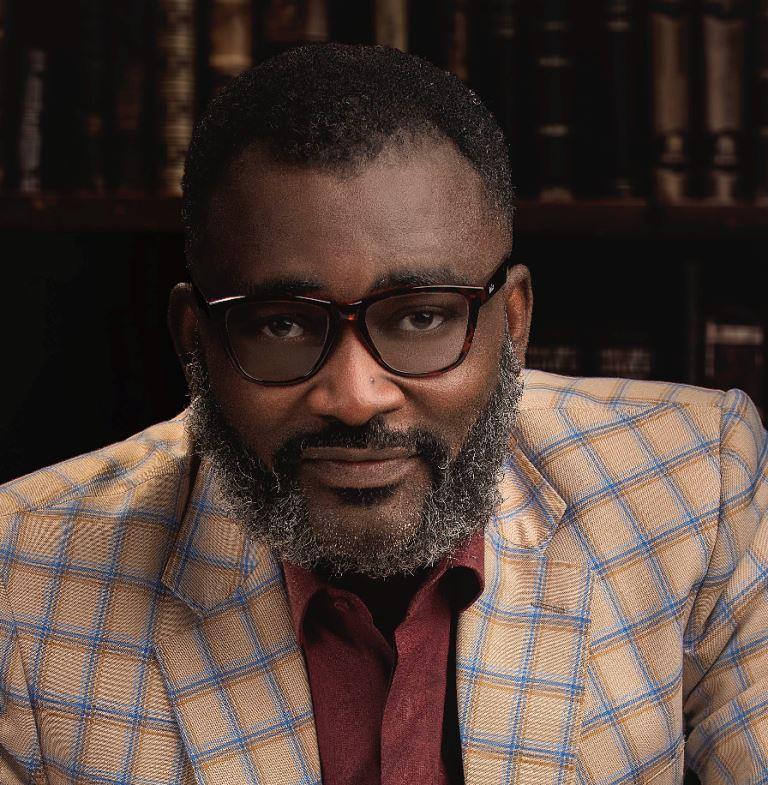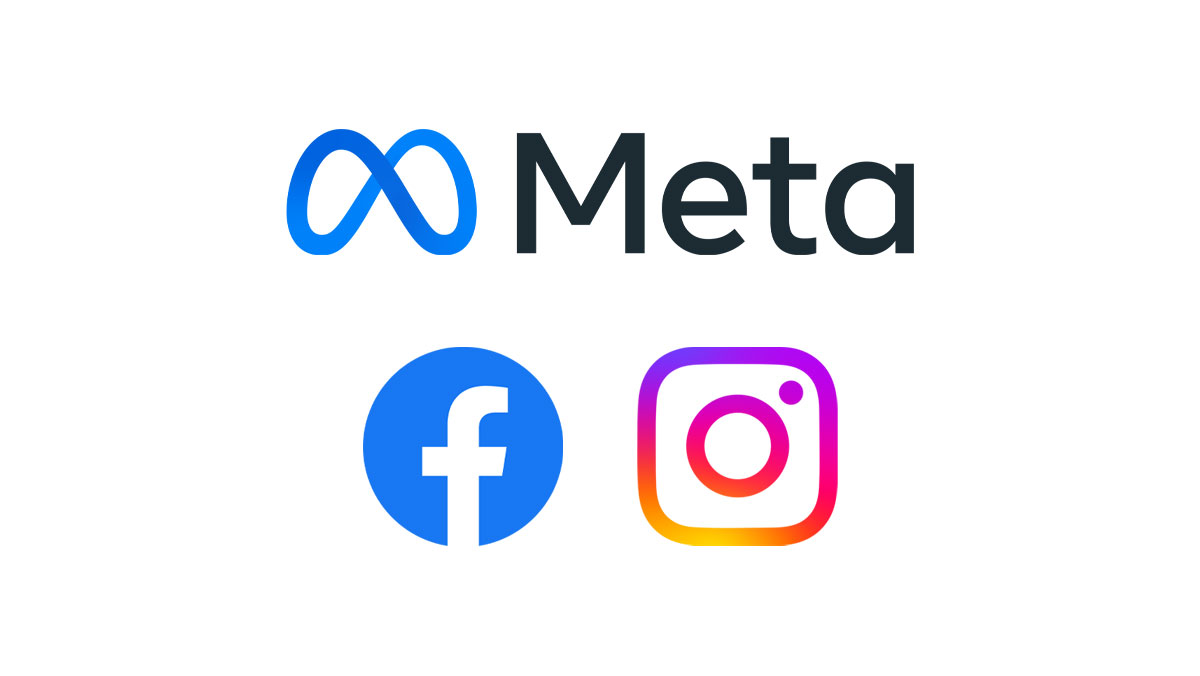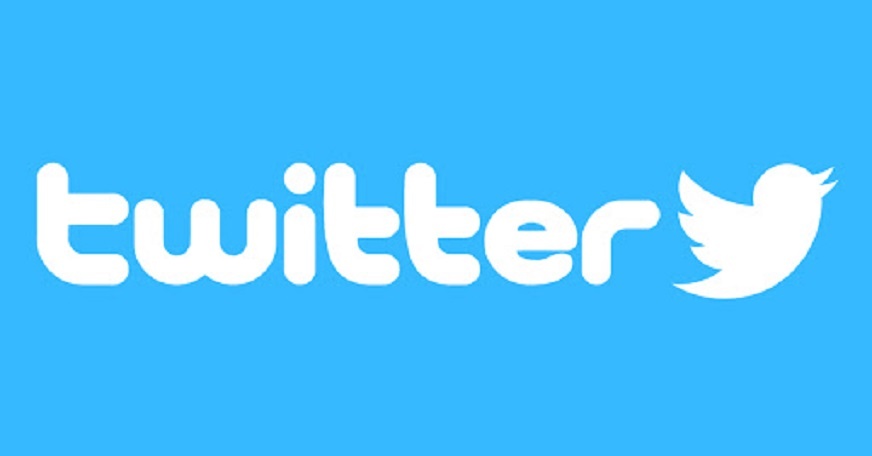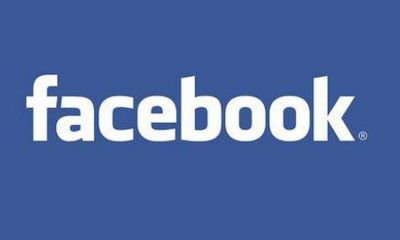Technology
Facebook Trains 50,000 Nigerians to Grow Economy
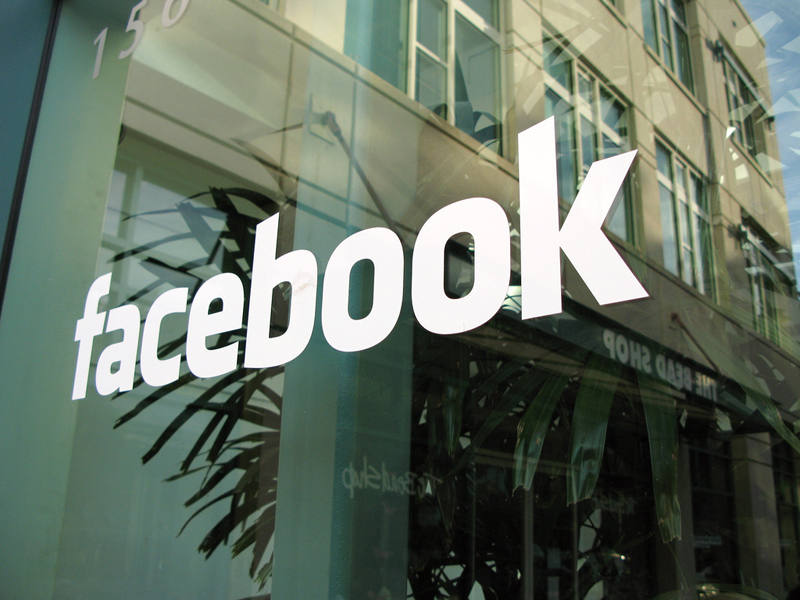
By Modupe Gbadeyanka
A new nationwide initiative in Nigeria to further cement its commitment and investment in the country and across the continent has been launched by Facebook.
According to Facebook Public Policy Director for Africa, Ebele Okobi, “In Nigeria, more than 22 million people use Facebook every month and 87 percent of SMEs say that when they hire, digital skills are more important than where an applicant went to school.
“This demonstrates that the power of digital skills to aid economic growth and development has never been more important.”
Okobi noted that, “At Facebook, our mission is clear: To give people the power to build community and bring the world closer together. Our investments and commitments announced in Lagos further reflect our intent to partner with Nigeria’s policy makers and its vibrant tech and entrepreneurial eco-system to create economic opportunity and independence in Nigeria and across Africa.”
It was gathered that the new initiative will incorporate a series of high profile partnerships, training programmes and a physical space that will serve as a centre for learning and skills development.
This set of initiatives is aimed at helping to develop and nurture communities, including small businesses, the tech and start-up ecosystem, youths and creatives.
In partnership with CC Hub, Facebook will be opening the doors to its first community Hub space in the heart of Lagos, scheduled to open early next year.
‘NG_HUB from Facebook’ will be a multi-faceted creative space, which will connect and bring together developers, start-ups and the wider community to collaborate, learn and exchange ideas.
The NG_HUB will also host a start-up incubator programme, as well as bespoke trainings, guest speakers and a dedicated event space, all aimed at attracting the best talent and driving innovation in Nigeria’s tech ecosystem.
Additionally, across Nigeria, Facebook will be supporting a number of existing tech Hubs to serve the communities outside Lagos. The hubs will function as learning centres for local communities, providing multiple opportunities for training and access.
Commenting on the announcement of NG_HUB in partnership with CC Hub, and Facebook’s further support of local hubs across Nigeria, Emeka Afigbo, Head of Platform Partnerships, Middle East & Africa said, “Nigeria is producing a new generation of exciting start-ups that have incredible potential. We understand the important role Facebook plays here in Nigeria with developers and start-ups and are invested in helping these communities build for the next billion.
“One of our key passions at Facebook is nurturing and helping to develop the tech and start-up community, and I’m excited to announce our partnership with the Nigerian tech hub ecosystem especially the NG_HUB space, here in Lagos.”
Facebook Nigeria Skills Programmes
Facebook said it’s committed to working with Nigerian small businesses, tech entrepreneurs and the next generation of leaders to better understand and utilise the power of digital tools for economic growth.
Launching a series of learning-based programmes facilitated by local training partners, these have been designed to provide skills that lead to employment and to support the growth of small businesses.
The goal is to train and support over 50,000 students, small businesses and creative entrepreneurs across the country through a series of scaled digital skills trainings, as well as long-term impact programmes.
The training programmes will include aspiring entrepreneurs: Digital (in partnership with the Fate Foundation) – a four-week intensive programme for entrepreneurs across Nigeria. This will be offered throughout the year in Lagos, Abuja, Port Harcourt, Calabar, Ibadan, Kaduna and Enugu.
It will also include jobs for youth: Coding for Employment – a training programme to develop Nigeria’s next generation of coders – designed to upskill developers and prepare them for employment
In addition, it will have boost your business – designed for small, medium sized businesses owners, teaching the fundamentals of digital marketing for business growth, with the goal to help business owners better understand their brand, audience and how to best reach and service them online.
Furthermore, it will include creative entrepreneurship training – specialised training designed specifically for creatives, including photographers, filmmakers, musicians, artists, bloggers and other creative content creators.
Finally, it will include online safety + digital literacy training in schools and universities – featuring a series of online safety and digital literacy courses for secondary school and university students
Ahead of the programme launch, Facebook undertook a detailed ‘Economic Impact Study’ to further understand how communities like small businesses and consumers in Nigeria use the platform, and the effectiveness of social media as a growth tool.
It was discovered that nearly 1 in 2 small businesses on Facebook say they built their business on the platform, and 62 percent stated they have been able to use Facebook to help find employees for their business, whilst over half (58 percent) of small businesses on the platform say they have been able to hire more employees’ due to growth since joining Facebook.
Technology
Emergent Ventures, Others Invest $2.2m in Potpie

By Dipo Olowookere
About $2.2 million pre-seed round to help engineering teams unify context across their entire stack and make AI agents genuinely useful in complex software environments has been announced by Potpie.
Potpie was established by Aditi Kothari and Dhiren Mathur, who were determined to unify context across the entire engineering stack and enabling spec driven development.
As generative AI adoption accelerates, most tools focus on surface-level code generation while ignoring the deeper problem of context.
Large language models are powerful, but without access to system-level understanding, tooling history, and architectural intent, they struggle in real production environments.
Traditional approaches rely on senior engineers to manually hold this context together, a model that breaks down at scale and fails when AI agents are introduced.
The platform enables teams to automate high-impact and non-trivial use cases across the software development lifecycle, like debugging cross-service failures, maintaining and writing end-to-end tests, blast radius detection and system design.
It is designed for enterprise companies with large and complex codebases, starting at around one million lines of code and scaling to hundreds of millions.
Rather than acting as another coding assistant, Potpie builds a graphical representation of software systems, infers behaviour and patterns across modules, and creates structured artefacts that allow agents to operate consistently and safely.
A statement made available to Business Post on Monday revealed that the funding support came from Emergent Ventures, All In Capital, DeVC and Point One Capital.
The capital will be used to support early enterprise deployments, expand the engineering team, and continue building Potpie’s core context and agent infrastructure, it was disclosed.
“As AI makes code generation easier, the real challenge shifts to reasoning across massive, interconnected systems. Potpie is our answer to that shift, an ontology-first layer that helps enterprises truly understand and manage their software,” Kothari was quoted as saying in the disclosure.
A Managing Partner at Emergent Ventures, Anupam Rastogi, said, “In large enterprises, the real challenge is not generating code, it is understanding the system deeply enough to change it safely.
“Potpie’s ontology-first architecture, combined with rigorous context curation and spec-driven development, creates a structured model of the entire engineering ecosystem. This allows AI agents to reason across services, dependencies, tickets, and production signals with the clarity of a senior engineer. That is what makes Potpie uniquely capable of solving complex RCA, impact analysis, and high-risk feature work even in codebases exceeding 50 million lines.”
Technology
Expert Reveals Top Cyber Threats Organisations Will Encounter in 2026

By Adedapo Adesanya
Organisations in 2026 face a cybersecurity landscape markedly different from previous years, driven by rapid artificial intelligence adoption, entrenched remote work models, and increasingly interconnected digital systems, with experts warning that these shifts have expanded attack surfaces faster than many security teams can effectively monitor.
According to the World Economic Forum’s Global Cybersecurity Outlook 2026, AI-related vulnerabilities now rank among the most urgent concerns, with 87 per cent of cybersecurity professionals worldwide highlighting them as a top risk.
In a note shared with Business Post, Mr Danny Mitchell, Cybersecurity Writer at Heimdal, said artificial intelligence presents a “category shift” in cyber risk.
“Attackers are manipulating the logic systems that increasingly run critical business processes,” he explained, noting that AI models controlling loan decisions or infrastructure have become high-value targets. Machine learning systems can be poisoned with corrupted training data or manipulated through adversarial inputs, often without immediate detection.
Mr Mitchell also warned that AI-powered phishing and fraud are growing more sophisticated. Deepfake technology and advanced language models now produce convincing emails, voice calls and videos that evade traditional detection.
“The sophistication of modern phishing means organisations can no longer rely solely on employee awareness training,” he said, urging multi-channel verification for sensitive transactions.
Supply chain vulnerabilities remain another major threat. Modern software ecosystems rely on numerous vendors and open-source components, each representing a potential entry point.
“Most organisations lack complete visibility into their software supply chain,” Mr Mitchell said, adding that attackers frequently exploit trusted vendors or update mechanisms to bypass perimeter defences.
Meanwhile, unpatched software vulnerabilities continue to expose organisations to risk, as attackers use automated tools to scan for weaknesses within hours of public disclosure. Legacy systems and critical infrastructure are especially difficult to secure.
Ransomware operations have also evolved, with criminals spending weeks inside networks before launching attacks.
“Modern ransomware operations function like businesses,” Mitchell observed, employing double extortion tactics to maximise pressure on victims.
Mr Mitchell concluded that the common thread across 2026 threats is complexity, noting that organisations need to abandon the idea that they can defend against everything equally, as this approach spreads resources too thin and leaves critical assets exposed.
“You cannot protect what you don’t know exists,” he said, urging organisations to prioritise visibility, map dependencies, and focus resources on the most critical assets.
Technology
NCC Begins Review of National Telecommunications Policy After 26 Years

By Adedapo Adesanya
In a consultation paper released to the public, the commission said it is seeking input from stakeholders, including telecom operators, tech companies, legal experts, and the general public, on proposed revisions designed to reposition Nigeria’s telecommunications framework to match current digital demands. Submissions are expected by March 20, 2026.
The NTP 2000 marked a turning point in Nigeria’s telecom landscape. It replaced the 1998 policy, introducing full liberalisation and a unified regulatory framework under the NCC, and paved the way for the licensing of GSM operators such as MTN, Econet (now Airtel), and Globacom in 2001 and 2002.
Prior to the NTP, the sector was dominated by Nigerian Telecommunications Limited (NITEL), a government-owned monopoly plagued by obsolete equipment, low teledensity, and poor service. At the time, Nigeria had fewer than 400,000 telephone lines for the entire country.
However, the NCC noted that just as the 1998 policy was overtaken by global developments, the 2000 framework has become structurally misaligned with today’s telecom reality, which encompasses broadband, 5G networks, satellite internet, artificial intelligence, and a thriving digital economy worth billions of dollars.
“The rapid pace of technological change and emerging digital services necessitate a comprehensive update to ensure the policy continues to support economic growth while protecting critical infrastructure,” the Commission stated.
The review will target multiple chapters of the policy. Key revisions include: Enhancements on online safety, content moderation, digital services regulation, and improved internet exchange protocols; a modern framework for satellite harmonisation, coexistence with terrestrial networks, and clearer spectrum allocation to boost service quality, and policies to address fiscal support, reduce multiple taxation, and lower operational costs for operators.
The NCC is also proposing entirely new sections to the policy to address emerging priorities. Among the key initiatives are clear broadband objectives aimed at achieving 70 per cent national broadband penetration, with a focus on extending connectivity beyond urban centres to reach rural communities.
The review also seeks to formally recognise telecom infrastructure, including fibre optic cables and network masts, as Critical National Infrastructure to prevent vandalism and enhance security.
In addition, the commission is targeting the harmonisation of Right-of-Way charges across federal, state, and local governments, alongside the introduction of a one-stop permitting process for telecom deployment, designed to reduce bureaucratic delays and lower operational costs for operators.
According to the NCC, the review aims to make fast and affordable internet widely accessible. “The old framework was largely voice-centric. Today, data is the currency of the digital economy,” the commission said, highlighting the need to close the urban-rural broadband divide.
The consultation process is intended to gather diverse perspectives to ensure the updated policy reflects current technological trends, market realities, and consumer needs. By doing so, the NCC hopes to maintain the telecommunications sector’s role as a key driver of economic growth and digital inclusion.
-

 Feature/OPED6 years ago
Feature/OPED6 years agoDavos was Different this year
-
Travel/Tourism10 years ago
Lagos Seals Western Lodge Hotel In Ikorodu
-

 Showbiz3 years ago
Showbiz3 years agoEstranged Lover Releases Videos of Empress Njamah Bathing
-

 Banking8 years ago
Banking8 years agoSort Codes of GTBank Branches in Nigeria
-

 Economy3 years ago
Economy3 years agoSubsidy Removal: CNG at N130 Per Litre Cheaper Than Petrol—IPMAN
-

 Banking3 years ago
Banking3 years agoSort Codes of UBA Branches in Nigeria
-

 Banking3 years ago
Banking3 years agoFirst Bank Announces Planned Downtime
-

 Sports3 years ago
Sports3 years agoHighest Paid Nigerian Footballer – How Much Do Nigerian Footballers Earn


